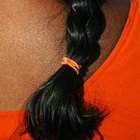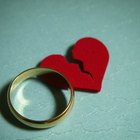
When your best friend announces that she's leaving for greener pastures, her spouse's job or any other reason, it can be a devastating blow. Although she's sad to be leaving you behind, she has the distraction of creating a new life in a different place. Meanwhile, you will still have the same life, but one with a gaping hole in it. Some coping strategies will help you deal with her absence and stave off depression over her loss.
Express Your Feelings
Before he leaves, let your friend know that you'll miss him dearly. Don't layer on the guilt by telling him that you can't imagine ever going to the movies again without him -- simply tell him that you've valued the good times you've had together and plan to enjoy the time you'll have with him before his move. Attempting to hold in your feelings will make you appear heartless and will do nothing for your long-term mental health.
Acknowledge Your Grief
Accept that you're going to feel sad after your friend moves. In a RealSimple.com interview, professor of psychology Robert Neinmeyer states that grief "can be a bittersweet beauty" and is "not something to be banished. It is a human experience to be lived, to be shared and to be understood and used." Acknowledge your feelings, and accept that the immediate pain will ease once you've gotten into the swing of things with new friends.
Make Plans
Make arrangements to visit your friend once she's settled into her new abode. Although it is possible to have a long-distance friendship, it is challenging when you are separated by many miles, notes psychologist Irene S. Levine in a February 2012 article in "Psychology Today." To keep years from passing before you see each other again, be intentional about saving money and taking time to visit your friend. If possible, make preliminary plans before the moving van pulls out of the driveway.
Keep Busy
Once your friend has moved, resist the urge to curl up in a chair with a stack of cheesy novels and instead make plans to get out and meet new people. Use your friend's departure as a catalyst for personal growth. Not having your BFF around as a default dinner partner or shopping buddy may help you become more independent. When you get out and socialize on your own, you're likely to meet people whom you might not have met when you were engaged in tete-a-tetes with your best friend.
Related Articles

How to Maintain a Friendship After a ...

How to Break Up With Someone Who Begs ...

How to Cope When Someone You Love Is ...

How to Know if You Want to Stay with a ...

Tips for Forgiving Your Best Friend

How to Bake Frozen Spanakopita

How to Store Tamales Before Steaming

How to Move Past the Honeymoon Stage ...

How to Build Trust After a Bad ...

How to Turn Friendship Into Love

How to Feel Less Bad About Yourself ...

How to Make Toasted Bread Sticks With ...

How Long After You Bake Should You Put ...

How to Blanch Kale for Freezing

How to Make Hair Extensions Wavy

How to Be More Patient With Your ...

How Long Do You Keep Meat in Freezer?

How to Repair a Relationship After Lying

What to Do When a Spouse Leaves You

How to Legally Change Your Name When ...
References
Writer Bio
Elise Wile has been a writer since 2003. Holding a master's degree in curriculum and Instruction, she has written training materials for three school districts. Her expertise includes mentoring, serving at-risk students and corporate training.
Photo Credits
Getty Images/Lifesize/Getty Images